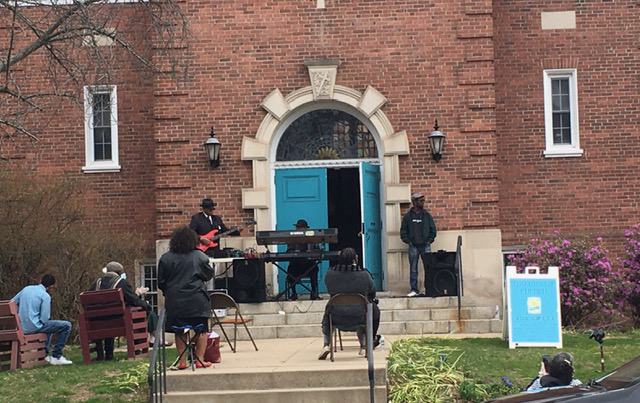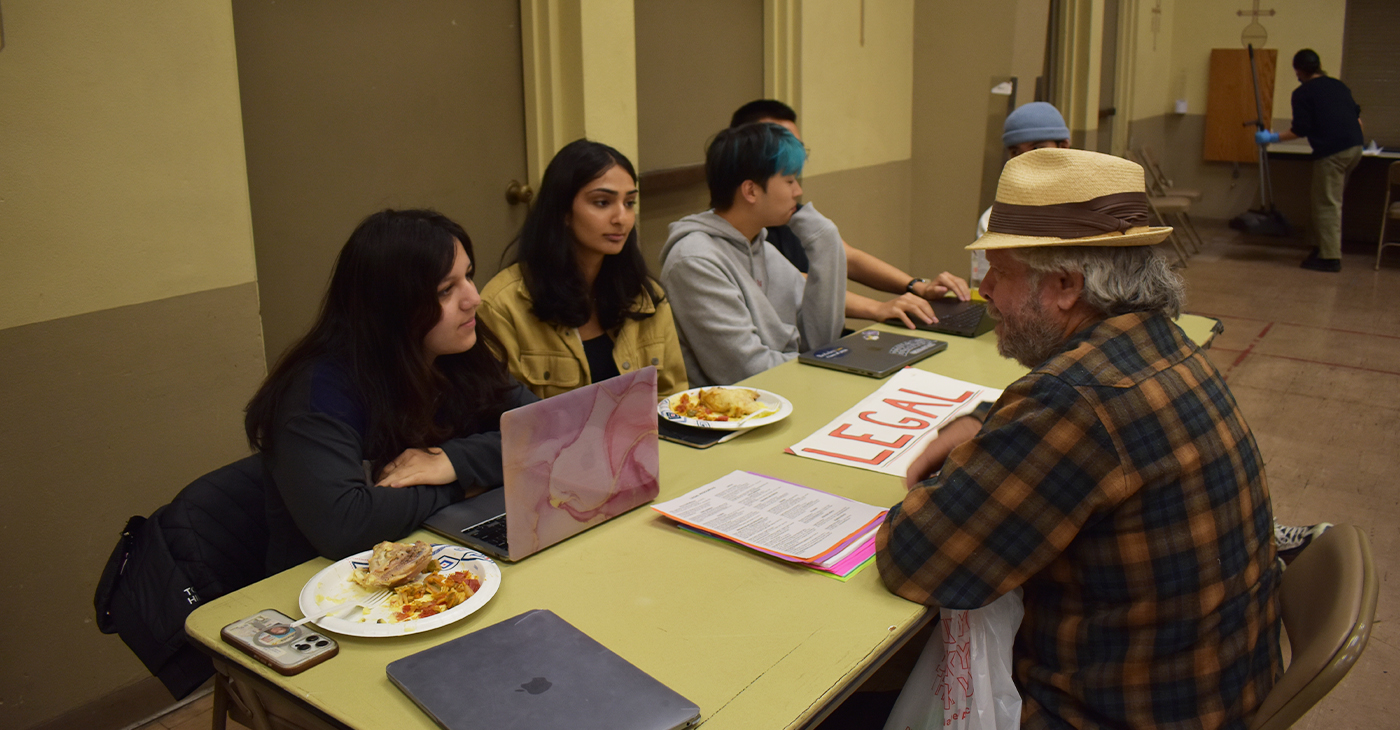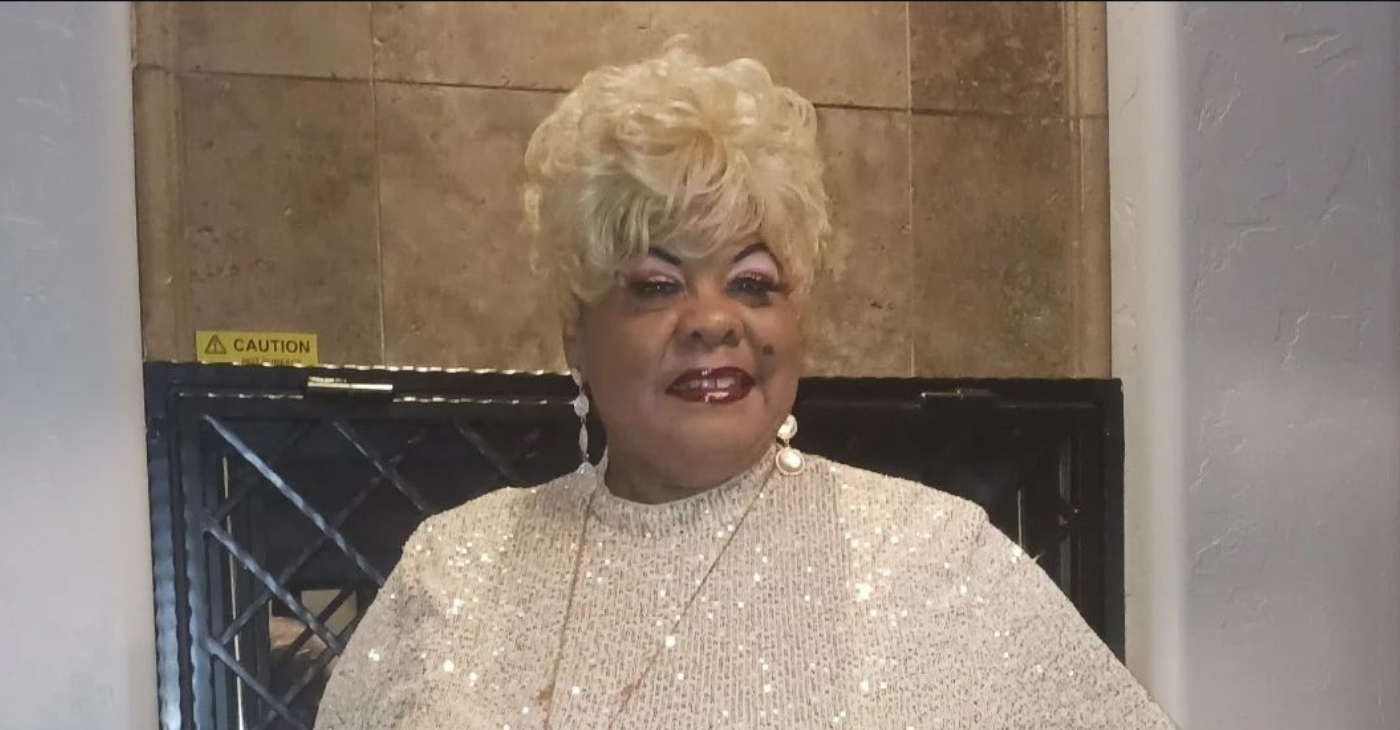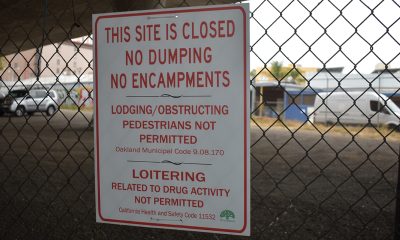Bay Area
S.F. Mayor London Breed Urges Religious Congregations to Do Their Part to Deter COVID-19

At her Wednesday press conference updating the public on COVID-19, San Francisco Mayor London Breed took a moment to wistfully recall the Easter Sundays of her childhood: the new church outfits, the egg hunts, good food and family gatherings.
But the first mayor in the U.S. to issue shelter-in-place orders for a metropolis of nearly 900,000 people, an action that is credited for the city’s comparatively low infection rate and resulting illness and death rates, emphasized that now was not time to be complacent and this included staying home from Easter services, Passover observances and later in the month, Ramadan.
Addressing churches and their members, Breed said “I know how hard it’s going to be to stay home and not go to church.”
“There are other ways to celebrate,” she said, such as online services. “Pastors and priests can also reach out to members by telephone” and instruct lay people to connect with the isolated, needy and vulnerable.
Mayor Breed went on to reference a church in Mt. Vernon, Wash., where a choir practiced on March 10, 2020. Even though they practiced safe distancing, at least 28 of the 45 members became sick with COVID-19 and two died.
“I am asking leaders of the religious community to impress on your members to stay at home,” she said.
Compared to national hot spots like New York and New Orleans, San Francisco’s statistics are encouraging: As of Wednesday, 5,994 people had been tested and of those, 676 had the virus and 10 people have died.
After the mayor cleaned the lectern with a sanitary wipe, San Francisco Interfaith Council President Michael Pappas came to the podium and confessed that he had feared resistance at first but as far as he knew all of the city’s “800 congregations of faith” were complying with the order and praised Breed’s leadership. The S.F.I.C. has been reaching out by telephone to congregants who are the most vulnerable and providing links to services on their web site.
San Francisco’s Third Baptist Church, under the leadership of Rev. Amos Brown, is complying with the order.
Brown thinks that Third Baptist is only doing what it has done since its founding in 1852, which is to provide help for African Americans who suffered and continue to suffer under white supremacy. H.E.L.P., Brown said is simple, practical and aspirational. ‘H’ stands for hope as opposed to fear and damnation, ‘E’ for enlightenment, including the value of science and history, especially the history of previous plagues and pandemics. ‘L’ is for love, which commands “us to love God, and love our neighbor as ourselves,” which, in practical terms, exhorts us to ‘P’ act with the power to change a situation, in this case to behave responsibly in preventing the spread of the virus based on fact.
Third Baptist had already had remote viewing for church services available before the order, and now all of them are online. Technology allows members to continue their tithes and contributions via credit card.
A contemporary of Rev. Jesse Jackson and Rev. Dr. Martin Luther King, Jr., Brown was one of the 3% of churches that supported the Civil Rights Movement in the U.S. at the time and promoted service to the community. Many other churches, he said, are on the fire-and-brimstone tip, encouraging salvation for the individual.
Brown would not have members needlessly sacrifice themselves to come to worship, though volunteers continue to provide food for their vulnerable seniors.
But he is worried about the people he sees flouting the shelter-in-place order sharing bottles outside nearby liquor stores and young people who don’t seem to understand that they can pass the disease on to their elders without even being aware they are infected.
Across the bay in East Oakland, the renowned Allen Temple Baptist Church, where U.S. Rep. Barbara Lee is a member, immediately complied with Alameda County’s shutdown order on March 17, 2020, closing their East Oakland campus but continuing to provide online Sunday worship, Bible study and Sunday school.
The church is also a veritable one-stop shop with a web page providing advice for young people, sources for food and directions for financial and psychological help.
And if that weren’t enough, one of the members is selling face coverings to comply with the recent Centers for Disease Control directive to cover one’s face when out and about.
But in the Bible Belt across the South where many states either don’t have or were slow to implement shelter-in-place orders, many Christians, especially Black Christians, may be more inclined to trust God and Jesus than other authorities like the government or scientists.
And they have good reason: Still in the living memory of Black Southerners is the Tuskegee experiment where Black men were infected with syphilis instead of the health injection they believed they were receiving. And, even now, government is failing the Black residents of Wisconsin, largely Democratic, who, despite a shelter-in-place order were denied a delay in the election date or absentee ballots and forced by the U.S. Supreme Court to go to polling places to vote on April 7, 2020, potentially endangering their health and spreading the virus.
Resistance to the order is not even so far from home. In Lodi, near California’s state capital, Pastor Jon Duncan of Cross Culture Christian Center continued to hold services despite Gov. Gavin Newsom’s directive. “First amendment rights are not suspended by the virus,” he said.
But his landlord, Bethel Open Bible Church, changed the locks and prevented Duncan from holding Palm Sunday services there.
Across the country in Hartford, Conn., Pastor Derrick C. Holloway, Jr. of First Calvary Church had no problem with the order, which was that no more than 10 people could gather in one place. The doors to the church home for his small flock of 48 were locked on Palm Sunday so they gathered on the doorstep, maintaining the appropriate distance of six feet apart.
They were observed by a reporter, Mark Pazniokas, who happened to ride by on his bicycle. The music and the pastor’s voice was arresting for passers-by on foot and in cars, whose occupants parked at a safe distance to listen. “May I have a palm frond, please” asked a woman in one car who was wearing a surgical mask. One was given to her.
Their actions showed they accepted the science but at the same time hungered for tradition, a hunger for prayer in a group setting and its assurances. So they did what so many Black people of faith have done in times of trouble, from the slave ship to the brush arbor, to the storefront churches and regal cathedrals, they took the time to pray.
Mark Pazniokas of the Connecticut Times-Mirror contributed to this report.
Activism
City of Oakland Celebrates Reopening of Main Library
“Libraries are such critical facilities for all Oaklanders, whether it’s children coming to story-time, adults reading the newspapers or borrowing the latest novels, and people engaging with a range of services and programs that the library hosts,” said Council President and District 2 Councilmember Nikki Fortunato Bas. “Such library services and programs are only possible when the facility’s electricity, heating, roof, and lighting are fixed and running efficiently. I’m proud to join this re-opening of our Main Public Library.”

The branch had been closed since May for critical infrastructure upgrades
Special to the Post
The City of Oakland leadership and community partners gathered to celebrate the reopening of the Main Library after completion of critical infrastructure upgrades to enhance the library’s facilities and provide a better experience for patrons.
Renovations include new roof installation, skylight repair, critical electrical system upgrades, new boiler control system installation, auditorium heating and cooling system installation, and improvements to lighting, flooring and ceilings throughout the building.
“This is truly something to celebrate, the reopening of our wonderful Main Library! I congratulate the staff and our partners for this important project to make the Main Library a more comfortable place for everyone for years to come, said Oakland Mayor Sheng Thao. “Thank you to Oakland voters and the California State Library for making these crucial improvements possible.”
“Libraries are such critical facilities for all Oaklanders, whether it’s children coming to story-time, adults reading the newspapers or borrowing the latest novels, and people engaging with a range of services and programs that the library hosts,” said Council President and District 2 Councilmember Nikki Fortunato Bas. “Such library services and programs are only possible when the facility’s electricity, heating, roof, and lighting are fixed and running efficiently. I’m proud to join this re-opening of our Main Public Library.”
“Public libraries are a wonderful resource for our residents, offering a safe space for learning and being,” said District 3 Councilmember Carroll Fife. “It is critical to improve and modernize our libraries so more members of our community can utilize and enjoy them. I’m excited that the necessary renovations to the Main Library have been completed successfully and thank everyone involved, particularly the City team, who helped secured the necessary grant funds for this work.”
“I am proud of the City staff and project partners who kept this important project on schedule and under budget,” said Assistant City Administrator G. Harold Duffey. “The library is an incredibly important resource for our community members, and this project is an investment into the library’s future.”
“December 2nd was a momentous occasion for Oakland Public Library as we proudly reopened the doors of the Main Library following extensive infrastructure repairs,” said Director of Library Services Jamie Turbak. “Closing the Main Library for six months was no easy decision, as it serves as the central hub for our library system and is truly the heart of Oakland. Yet, this renovation was essential, representing more than just physical upgrades—it reflects our ongoing commitment to creating a safe, welcoming space for everyone.”
The City Administrator Jestin Johnson also attended the press conference and signalled his support for the completion of the record-setting completion of the renovations. Gay Plair Cobb, a newly appointed Library Commissioner said the Library represents the soul and brains of our community.
The Oakland Public Library secured funding for these crititcal repairs through a variety of sources. The California State Library’s Building Forward Library Facilities Improvement Program awarded the Main Branch $4.2 million. To comply with the grant terms, the City of Oakland provided matching funds through Measures KK, as approved by the Oakland City Council in October 2023.
The Main Library will host an Open House to celebrate the reopening on February 22, 2025, 10 a.m. – 5:00 p.m.
About the Oakland Public Library
The Oakland Public Library is a part of the City of Oakland in California and has been in existence since 1878. Locations include 16 neighborhood branches, a Main Library, a Second Start Adult Literacy Program, the Oakland Tool Lending Library, and the African American Museum and Library at Oakland (AAMLO). The Oakland Public Library empowers all people to explore, connect, and grow. Oaklandlibrary.org
Activism
A Student-Run Group Provides Critical Support Services to Underserved Residents
Those visiting The Suitcase Clinic can get legal advice, sign up for food assistance, receive housing resources, get medical help, or enjoy a hot, fresh meal. They can also get haircuts and foot washes from the student volunteers. Nilo Golchini, executive director of the clinic, said one of the goals for most of the students working there is helping bridge the gap of trust that exists between many unhoused people and the healthcare and social welfare systems.

Part One
By Magaly Muñoz
Every Tuesday evening, the dining hall of First Presbyterian Church fills up with dozens of people eating, laughing and moving from table to table, receiving much-needed services from UC Berkeley students – just a few blocks away from the university’s campus.
Individuals seeking support services can be found in this multi-stationed room on the south end of the church talking to law students, student case managers, or receiving medical attention in a corner by healthcare professionals.
This weekly event is hosted by Cal students through a volunteer-run program called The Suitcase Clinic.
The clinic, founded in 1989, was intended to offer free resources to underserved communities in Berkeley and surrounding cities. The majority of the clinic’s clientele are unhoused or low-income people looking for extra support.
Those visiting the clinic can get legal advice, sign up for food assistance, receive housing resources, get medical help, or enjoy a hot, fresh meal. They can also get haircuts and foot washes from the student volunteers.
Nilo Golchini, executive director of the clinic, said one of the goals for most of the students working there is helping bridge the gap of trust that exists between many unhoused people and the healthcare and social welfare systems.
During their tenure in the program, many of the students say they become strong advocates for homelessness rights.

Visitors of the Suitcase Clinic can receive haircuts and foot washing by student volunteers every Tuesday evening. Photo by Magaly Muñoz.
“We’re also standing in solidarity with them. So, it’s not saying, ‘I’m going to help you, but I’m also going to stand with you,’” Golchini said.
Student volunteers get extensive training prior to working directly with clients. Those interested have to take a semester-long class to become versed in areas such as outreach, intersectionality, how to interact with unhoused people, how to sign people up for social services. and more.
Volunteers then get to pick from three different clinics: General, Women’s, or Youth and LGBTQ+.
The General Clinic is the most popular among visiting residents, while Women’s and Youth/LQBTQ+ have more specialized services for attendees.
The Women’s Clinic has many of the similar services to General, but also includes nail painting, childcare, and massages.
The Youth and LGBTQ+ Clinic offers a safe space for young people navigating living on the streets, with services that include housing referrals, wellness and recreation classes and employment resources.
Golchini explained that it’s important for them to keep these clinics separate because the different demographics experience poverty and homelessness differently than those who visit the General Clinic.

Suitcase Clinic student workers posing for a photo with a frequent clinic attendee. The Clinic is open to Berkeley unhoused and low-income residents who need medical or legal service, or a hot meal. Photo by Magaly Muñoz.
“We’re able to provide spaces where people can come in and feel safe and not feel like they’re constantly worried that something’s going to happen to them,” she said.
An outreach team also visits encampments every other Saturday in the Berkeley area to provide hygiene kits and encourage people to visit the in-person clinic, if possible.
However, Golchini said engagement has been low for some time now due to a recent decision by the U.S. Supreme Court that allows cities to ban and cite people for sleeping on the streets.
She said a lot of their clientele got displaced to other cities over time, making it difficult to stay in contact with the services the Clinic was providing for them.
But that hasn’t slowed down the students at the Clinic, if anything, it has pushed them to do more for the community they serve.
Arts and Culture
Promise Marks Performs Songs of Etta James in One-Woman Show, “A Sunday Kind of Love” at the Black Repertory Theater in Berkeley
“The (show) is a fictional story about a character named Etta, aka Lady Peaches,” said Marks. “She falls in love with Johnny Rhythm, leader of the Rhythm Players Band and headliners of Madam G’s Glitta Lounge.” Marks channeled the essence of Etta James, singing favorites such as “Sugar on the Floor” and “At Last.”

Special to the Post
It was “A Sunday Kind of Love” at the Black Repertory Group Theater in Berkeley on Saturday night, Dec. 7. The one-woman musical based on the music of Etta James featured the multi-talented singer Promise Marks
Marks, who wrote and directed the musical, also owns PM Productions.
“The (show) is a fictional story about a character named Etta, aka Lady Peaches,” said Marks. “She falls in love with Johnny Rhythm, leader of the Rhythm Players Band and headliners of Madam G’s Glitta Lounge.”
Marks channeled the essence of Etta James, singing favorites such as “Sugar on the Floor” and “At Last.”
In between her soulful songs, Marks narrated impactful moments of the love story and journey of blues and forgiveness.
Marks sultry voice carried the audience back to an era that echoed with the power of Black music and a time of great change.
Marks said James shared love for the Black community by singing at gatherings during the Civil Rights Movement uplifting the people.
“She spoke to the movement, spoke to the people, and let her music speak for itself,” Marks said.
Backing the musical’s monologues, images and videos of Etta James are projected for the audience to view. While the production is fictional, Marks infused script with the unfairness and heartbreak James experienced while performing.
Marks performed gospel artist Donnie McClurkin’s “We Fall Down” as she narrated acts of reconciliation and forgiveness among the characters at Johnny Rhythm’s deathbed.
Marks, who regularly sings for the Miss America Pageant, was asked to perform as Etta James last year. “(At the event) a lady yelled out to me: ‘You’re Etta James!’ And then the audience went crazy. I said to myself, ‘I may have something here,’” she said.
Within 12 months, Marks created the musical production, which featured a dozen songs honoring “the great legacy of Etta James,” she said.
Marks says she was saddened to see how Etta James was often judged by the struggles in her life and wanted to offer attendees a more layered view.
“Etta’s life was so big. I want people to know that she was more than her drug addiction,” said Marks. “We can’t make that her legacy. Her catalog is too amazing. You can’t just be that and have the catalog that she (created). I don’t want the addiction to be the focus: I want her music, her element, her sassiness, and what she brought to be the focus – her woman-ness, that she was strong, and I wanted to honor that.”
Set Designer Nora Burnette says she created the set segments to mirror James’ life story. A set designer for BRG since 2016, she explained that her process of researching the scenario and the character serve as her inspiration for her design.
“I try to design a set as close to real life as possible so that the actress can deliver the performance sincerely,” said Burnette. “By creating the right setting, it helps the actors release the true essence of a character.”
The set brought the story to life and absolutely floored Marks. “Once Promise (Marks) saw the actual set, she understood my vision: ‘Wow, you get me. You get it,'” Marks told the designer.
Born Jamesetta Hawkins, Etta James, began her career in 1954 and gained fame with hits such “At Last” and “I’d Rather Go Blind.” She faced a number of personal problems, before making a musical comeback in the late 1980s with the album “Seven Year Itch.”
Co-producer and BRG Development Director, Sean Vaughn Scott, works with Overseer Production. According to producer Pamela Spikes, “Marks talent truly does Etta’s life story justice.”
Pam Jacobs of Hercules, a friend of Marks’ mom, Jackie Smith, said, Marks “was fabulous and sang all of those songs flawlessly.”
“I’m so proud of my daughter,” said Smith.
Marks, who has served as an instructor for BRG, will return on Feb. 21- 23 for an encore run of the musical.
“It’s an honor to be a part of the BRG (Black Repertory Group) family and continue our executive director Dr. Mona Vaughn Scott’s vision for the Black Repertory Group theater,” said Marks.
The Black Repertory Group Theatre is located at 3201 Adeline St., Berkeley, CA 94703. For information, visit: BlackRepertoryGroup.com
-

 Activism4 weeks ago
Activism4 weeks agoOakland Post: Week of November 20 – 26, 2024
-

 California Black Media3 weeks ago
California Black Media3 weeks agoCalifornia to Offer $43.7 Million in Federal Grants to Combat Hate Crimes
-

 Activism4 weeks ago
Activism4 weeks agoAn Inside Look into How San Francisco Analyzes Homeless Encampments
-

 Black History3 weeks ago
Black History3 weeks agoEmeline King: A Trailblazer in the Automotive Industry
-

 California Black Media3 weeks ago
California Black Media3 weeks agoCalifornia Department of Aging Offers Free Resources for Family Caregivers in November
-

 California Black Media3 weeks ago
California Black Media3 weeks agoGov. Newsom Goes to Washington to Advocate for California Priorities
-

 Activism3 weeks ago
Activism3 weeks agoOCCUR Hosts “Faith Forward” Conference in Oakland
-

 #NNPA BlackPress4 weeks ago
#NNPA BlackPress4 weeks agoPRESS ROOM: Clyburn, Pressley, Scanlon, Colleagues Urge Biden to Use Clemency Power to Address Mass Incarceration Before Leaving Office


























































